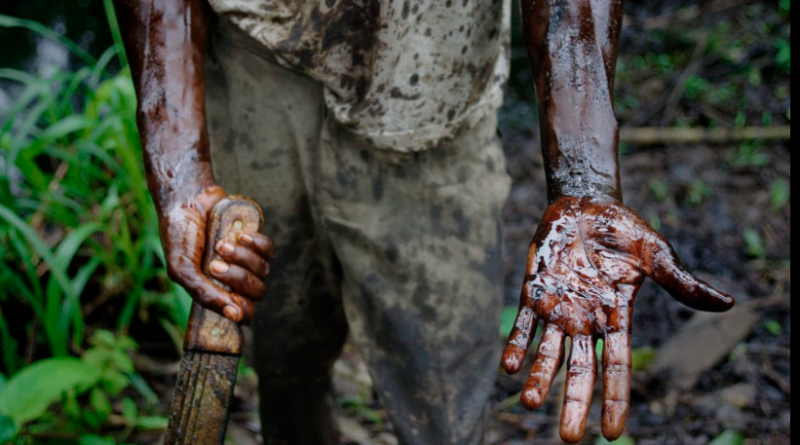Shell Ordered to Compensate Nigerian Farmers Over Oil Spill
Jasmine Ortega
Staff Writer
A Dutch court has held the Nigerian subsidiary of the British-Dutch multinational Royal Dutch Shell liable for several oil spills in the Nigerian Niger Delta in 2006 and 2007, The New York Times reports. This case, which concludes a 13 year-long legal battle between four Nigerian farmers and the company, will likely be a catalyst for more successful environmental cases against multinational oil firms.
According to Bloomberg, the ruling, which came from the Hague Court of Appeals, ordered Shell Nigeria to issue payouts to compensate for the damages arising from pipeline leaks in the villages of Oruma and Goi. It has also ordered both Shell Nigeria and its parent company to pay for preventative leak-detection systems to avoid other leaks in the future.
The ruling is significant because oil spills have plagued the Niger Delta region for many decades. More oil is spilled across this region every year than was spilled in the Gulf of Mexico in 2010, making it one of the most polluted places on the planet, the Guardian reports. Shell, despite being responsible for a great number of these spills, has rarely taken preventative measures to avoid them.
According to company records, Shell Nigeria manages around 50 oil fields, five gas plants, and more than 3,000 miles of pipelines in the country. In 2008, according to the New York Times, a U.S. cable published by WikiLeaks revealed that 75 percent of Nigerian pipelines owned by Shell were more than ten years overdue for replacement, “with some that had a life expectancy of 15 years still in operation after 30.”
Chief James, the assistant secretary to the Bodo region’s council of chiefs and elders, has stated that the oil spills caused by Shell have, “caused serious poverty to everyone. Nearly 80% of people here are fishermen or they depend on the water. They have lost their livelihoods. People are leaving the community in their hundreds to search for greener pastures. We used to live beautifully. People caught so much fish we could sell it to the cities. Now we have no hope.”
Nigerian law holds that the company would only be held liable if it can be proven that the leaks were not the result of sabotage, according to Al Jazeera. Because of this law, Shell Nigeria has been able to avoid liability for years by arguing that the oil spills it produced were all the result of vandalism, theft, or sabotage.
According to the New York Times, former head of environmental studies for Shell Nigeria Bopp Van Dessel resigned in 1994, stating that he could no longer defend the company’s environmental record “without losing his personal integrity.”
According to NPR, Shell is facing yet another legal challenge brought by environmentalists such as Friends of the Earth in the Netherlands, in which the plaintiffs argue that Shell should be forced to reduce its carbon dioxide emissions.

